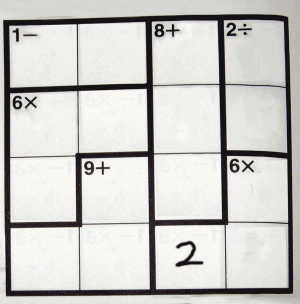Do you remember the scene in the movie Rainman in which Dustin Hoffman, playing Ray, an autistic savant, instantaneously counts the number of toothpicks spilled on a restaurant floor by a waitress? “Two hundred forty-six total,” Ray intones. His brother, Charlie (played by Tom Cruise), asks the waitress how many toothpicks were in the box she’d just opened. “Two hundred and fifty,” she answers. Charlie smiles at Ray. “Pretty close,” he says. Then the flabbergasted waitress adds: “There’s four left in the box.”
The rest of us can’t estimate with anything close to Ray’s exactitude. But a new study suggests that by playing games that involve quickly guessing how many items are in a group of objects, children can help themselves become better at traditional math problems.
“We wanted to know whether thinking intuitively about numbers, such as approximating and comparing sets without counting, helps in actually doing math,” said University of Illinois psychology professor Daniel Hyde in a report on the the UI website. The UI article continues:
“Hyde and his coauthors report that practicing this kind of simple, instinctive numerical exercise can improve children’s ability to solve math problems. The researchers asked first-graders to practice tasks that required them to approximate, or roughly evaluate the number of objects in a set without counting them. Other children did tasks such as comparing the brightness of two objects or adding the lengths of lines.
Children who practiced evaluating the number of objects performed better on arithmetic tests immediately afterward than did their counterparts who evaluated other qualities of objects, Hyde said. ‘These results showed that brief practice with tasks requiring children to guess or intuit the number of objects actually improved their arithmetic test performance,’ he said.”


